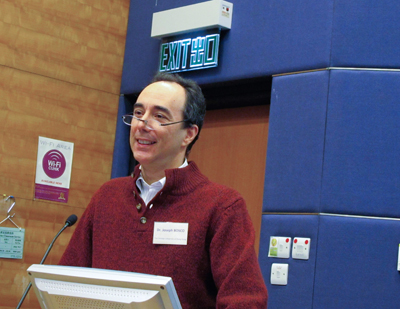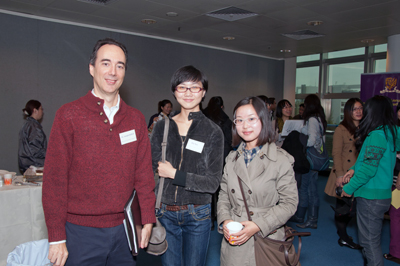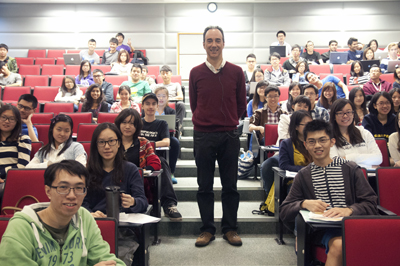|

I am honored to receive the Exemplary Teaching Award in General Education. There are many good teachers in this university, so it is a special honor to be singled out.
My teaching philosophy is captured by the owl, which is the symbol of the Office of University General Education. In the West, the owl is associated with Athena, the goddess of knowledge and wisdom. Owls look smart, with eyes on the front of their head like humans; many species appear to be wearing glasses. The owl embodies my goal as a teacher, which is to help students develop wisdom. A university education is not vocational training; we are preparing students not only for their first job, but for a life of learning in a rapidly changing world.

One of my primary objectives as an anthropologist is to help students see how culture shapes our view of the world. I want them to be able to see things from a different culture's perspective, and to see beyond their naturally ethnocentric perspective. I do not seek to change students' values, but to make them aware of their values. If they recognize the range of possible values that exist across cultures, they can understand other people and communicate better in this increasingly interconnected and diverse world.
My role as a teacher is to coach, encourage, and inspire students to learn. I am not primarily there to impart knowledge—that can be done more efficiently by a book or a video. The two hours of lecture are too short for direct knowledge transfer, and the lecture format can be very boring for students, so it is not effective in helping students see the world in new ways. I try to use valuable class time to explore ideas and deepen students' understanding of the material, rather than just imparting information.

But the owl is not only a symbol of wisdom; it is nocturnal and has large eyes, so is believed to see things that are hidden or secret. It is associated with omens, clairvoyance, and intuition. It could be the mascot for "Magic, Myth and the Supernatural," the course I created to take advantage of students' curiosity about magic to focus on the cultural creation of reality. Many things in life are culturally real even if they are not physically real. For example, the class explores the cultural definition of ghosts. Chinese ghosts are said to lack feet, while American ghosts are mere shadows, or may not be visible at all, but can make unexplained noises and move furniture. While many people think Asian cultures are more "superstitious," we find that there many supernatural phenomena in the West (e.g. UFOs, alien abductions, good luck charms, and even much stock picking advice), so magical thinking is not "backward" or "old-fashioned" but part of the human condition. This course allows us to see how important culture is in defining our sense of reality. The course also allows students to learn how to discuss strongly held beliefs in a respectful manner.
I am continuously improving and adapting my courses. I have experimented with weekly quizzes and class simulations. I divide my class into 20 minute segments, with lectures broken up by discussions or a video clip. I learned early on in my teaching that most people cannot pay attention for a full 45 minute lecture. This is especially true for our current generation of students who grew up with many choices of media, and who will pull out their smartphone and check Facebook if the class gets boring.
The world is complex. Theories are only partial explanations, and many theories seem to contradict each other. Owls also symbolize this complexity and contradiction. Owls can symbolize ancient wisdom and intuition, but also hidden knowledge, secrets and omens, and even, when associated with their eerie hoot, death and misfortune. Students need to learn to reconcile conflicting theories, and balance opposing points of view. Finding that balance, that golden mean, or 中庸 "Zhongyong", takes wisdom. My goal is to give students tools and to support them in the first few steps on what will be a lifelong journey of learning, a journey that hopefully will help them approach the owl's wisdom.

|











